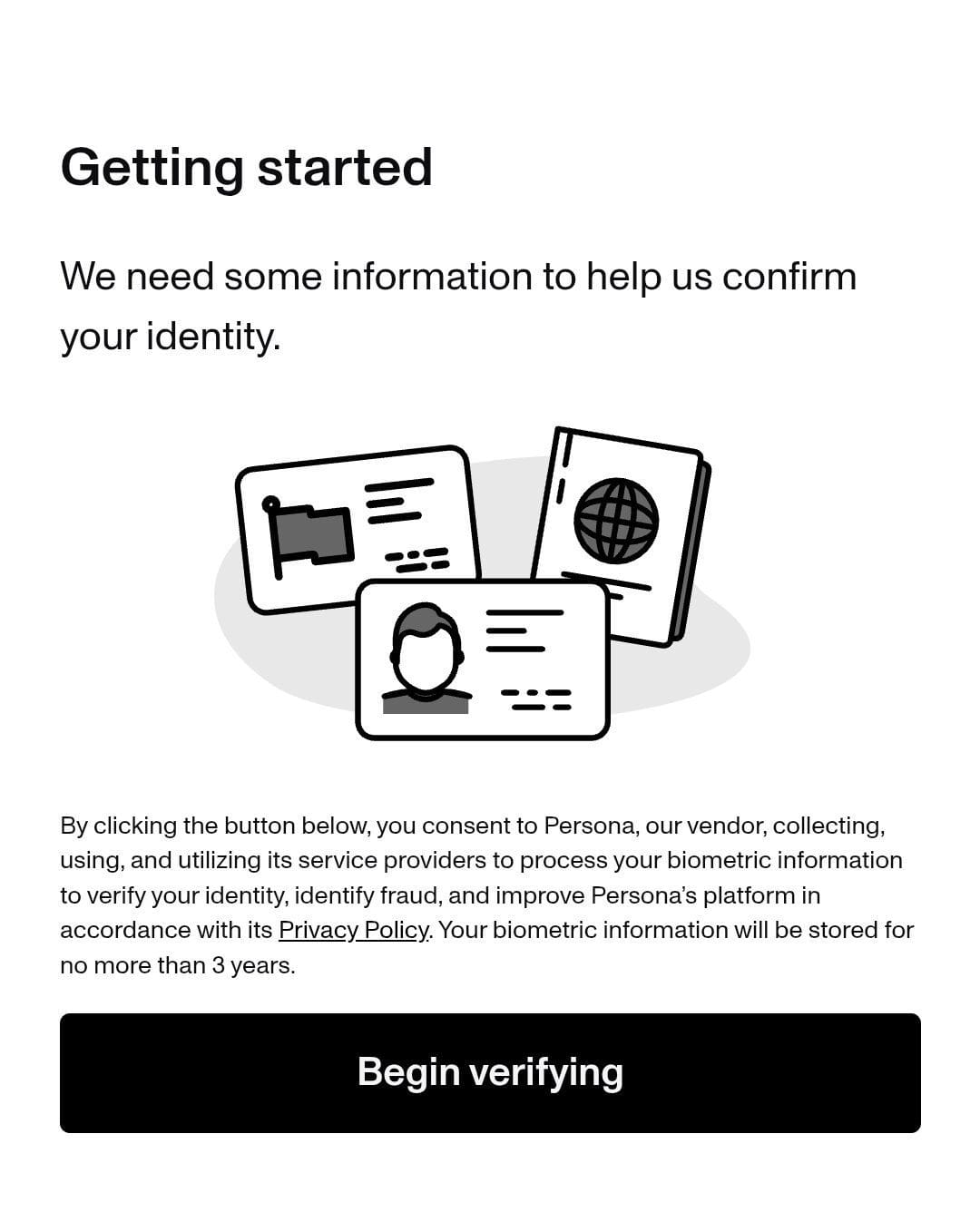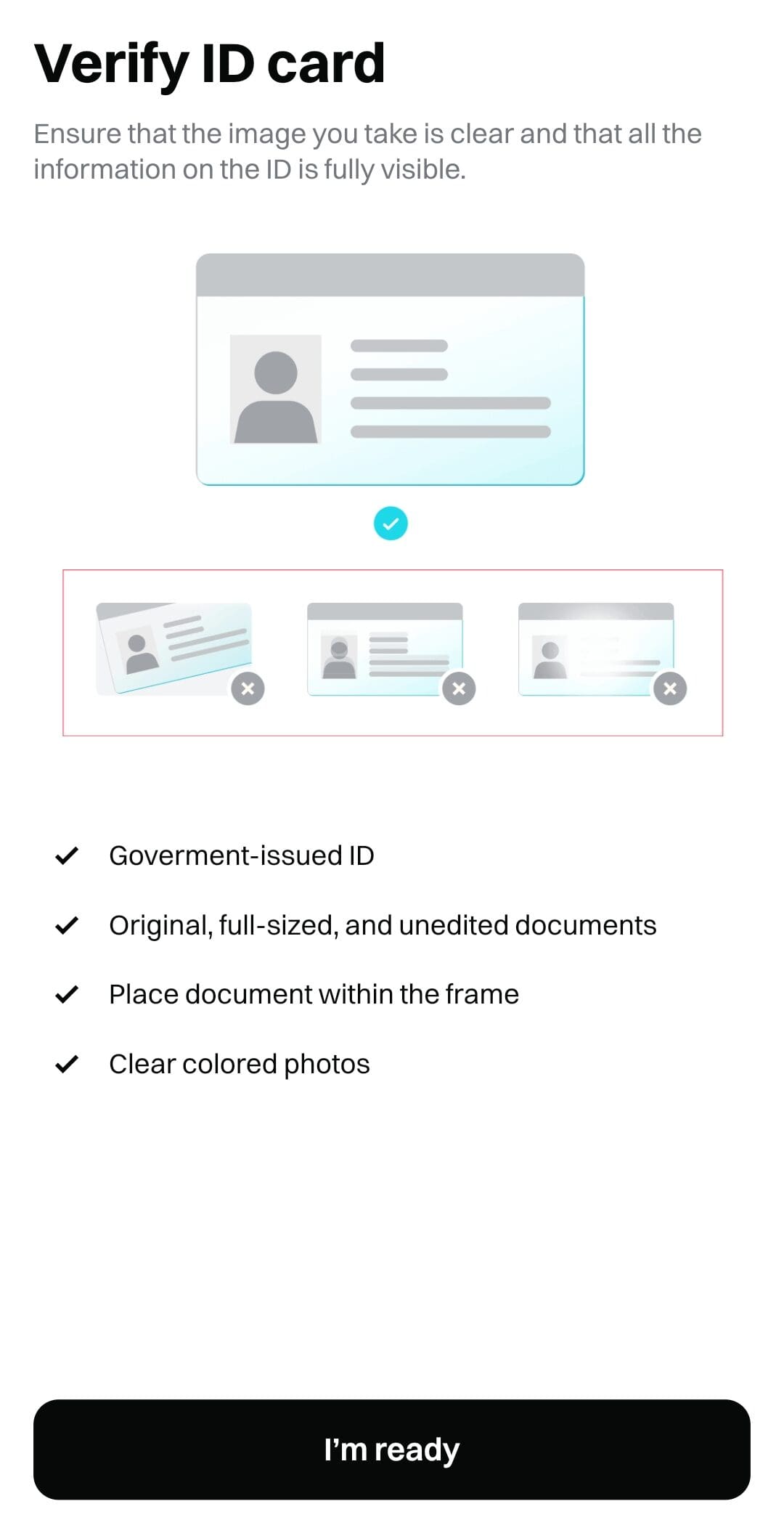Table Of Content
What Is KYC in Crypto?
KYC, or Know Your Customer, is a regulatory process that crypto exchanges use to verify the identity of users. It helps prevent illegal activities such as money laundering, fraud, and terrorism financing.
Most reputable platforms require KYC before allowing large withdrawals, fiat deposits, or access to advanced trading features. This process ensures compliance with financial regulations and builds user trust.
According to FINRA and the FATF, KYC is essential for maintaining a secure and transparent financial ecosystem, including in the crypto space.
How KYC Verification Works on Exchanges
Before users can access key services on most crypto exchanges, they must complete a KYC process.
This step is not just a formality—it’s legally required in many jurisdictions to reduce financial crime and promote accountability. Here’s how it typically works:
-
Account Setup with Identity Submission
Users must first create an account and submit documents for verification.
Government-issued ID: This could be a passport, driver’s license, or national ID. It confirms your name, birthdate, and photo.
Selfie with Document: Some platforms require a photo of you holding your ID to visually match your identity.
Address Proof: You may need to provide a recent utility bill or bank statement to verify your residential address.
These initial steps help platforms confirm you are a real person—not a bot or fraudster.

-
Document Verification and Screening
After submission, the platform runs background checks using third-party systems.
Sanctions List Checks: Exchanges screen users against global watchlists to avoid onboarding risky individuals.
AI-Based Scanning: Optical character recognition (OCR) tools automatically validate document authenticity.
Manual Review: If automated tools flag inconsistencies, a human reviewer may step in to manually verify documents.
As a result, this step strikes a balance between speed and regulatory precision to reduce onboarding friction.

-
Risk Profiling and Tiering
Users are often assigned a risk level or tier depending on their verification level.
Tier-Based Access: Basic verification may allow crypto-only transactions, while full KYC unlocks fiat trades and higher limits.
Ongoing Monitoring: Platforms monitor accounts for suspicious behavior, like rapid fund transfers or mixing services.
Flags and Holds: Sudden changes in activity might trigger additional KYC checks or temporary account holds.
This tiered structure helps exchanges stay compliant while scaling access responsibly.
-
KYC Updates and Ongoing Compliance
KYC is not a one-time task—users may need to update information periodically.
Re-Verification: Users might be asked to submit fresh documents if old ones expire or during account recovery.
Regulatory Audits: In high-risk countries, governments may request exchange records for compliance purposes.
Policy Changes: As rules evolve, exchanges may require additional details to maintain global compliance.
Ongoing updates ensure that exchanges meet both local laws and international standards.
KYC Verification Pros and Cons
KYC verification is widely used on crypto exchanges to enhance security and ensure regulatory compliance.
However, it also comes with tradeoffs that matter depending on your privacy, security, and trading priorities.
Pros | Cons |
|---|---|
Improved Security | Loss Of Privacy |
Regulatory Compliance | Data Breach Risk |
Higher Account Limits | Longer Onboarding Process |
Customer Recovery Options | Exclusion In Some Regions |
- Improved Security
By verifying identities, exchanges make it harder for fraudsters and hackers to open fake accounts and launder stolen crypto.
- Regulatory Compliance
KYC helps exchanges meet anti-money laundering (AML) rules, which builds trust with banks, regulators, and institutional investors.
- Higher Account Limits
KYC-approved accounts often get access to higher withdrawal and trading limits, along with fiat funding options.
- Customer Recovery Options
In the event of account loss or breach, KYC provides a pathway for identity-based recovery—something not possible on anonymous platforms.
- Loss of Privacy
Sharing ID documents and personal data can feel intrusive, especially for users who prioritize anonymity in crypto use.
- Data Breach Risk
If the exchange suffers a cyberattack, your sensitive personal information could be exposed or stolen.
- Longer Onboarding Process
KYC adds friction, requiring time and effort before you're allowed to trade, especially on new or smaller exchanges.
- Exclusion in Some Regions
Users in restricted or high-risk countries may be denied access altogether due to strict KYC enforcement policies.
How Long Does KYC Verification Take?
KYC verification time depends on the platform and the accuracy of your submitted documents.
For major exchanges like Binance or Kraken, basic verification is usually instant, but full KYC verification may take anywhere from a few minutes to 48 hours. Delays often occur due to manual review, document mismatches, or high user volumes.
Therefore, it’s wise to upload clear, valid documents and avoid special characters in your name or address to speed up the process.
Alternatives to Buy Crypto Without KYC?
If privacy is a priority, there are still ways to access crypto without submitting personal documents—but they come with added risks.
Decentralized Exchanges (DEXs): Platforms like Uniswap and PancakeSwap allow users to trade directly from their wallets without KYC.
Feature | Centralized Exchange | Decentralized Exchange (DEX) |
|---|---|---|
KYC Requirement | Mandatory on most platforms | Not required |
Onboarding Speed | Slower due to ID verification | Instant (wallet connect only) |
Recovery Options | Possible via identity proofs | No recovery — wallet-only access |
Regulatory Compliance | Aligned with AML/KYC laws | Usually non-compliant or unregulated |
Bitcoin ATMs: Some machines let you buy small amounts of BTC with cash and no ID, though they charge higher fees.
Peer-to-Peer (P2P) Platforms: Sites like LocalBitcoins and AgoraDesk offer direct trades with individuals, but reputation and escrow tools vary.
Prepaid Crypto Gift Cards: Some services let you purchase gift cards redeemable for crypto, which is ideal for small-scale buyers.
Crypto Vouchers and E-codes: Depending on the provider, these are sold online or in physical stores and can be redeemed without registration.
Each method allows some level of anonymity, but it also increases the chance of scams or legal issues, especially in highly regulated regions.
How KYC Can Be Used to Track Crypto Transactions
KYC data links wallet addresses to real-world identities, enabling authorities and exchanges to trace blockchain activity back to individuals.
For example, if someone transfers funds to a centralized exchange, their identity can be flagged via on-chain analytics and cross-referenced with KYC profiles. This transparency helps in investigating crimes like ransomware, illicit trading, or fraud.
As a result, law enforcement and regulators increasingly use tools like Chainalysis and Elliptic to monitor and trace crypto flows tied to verified users.
FAQ
Yes, on some decentralized platforms like Uniswap or via peer-to-peer networks, but access to fiat and limits will be restricted.
No. Non-custodial wallets like MetaMask or Trust Wallet don’t require KYC since users control their own keys.
Selfies help confirm that the person submitting the ID is actually the account holder, reducing identity fraud.
Not directly to coins, but to the platforms that facilitate fiat conversion or centralized trading of those assets.
Your account may be limited to crypto-only actions, and you won’t be able to deposit or withdraw fiat currency.
Most reputable exchanges use encryption and third-party verification services to secure your personal data, but risks remain.
KYC is a part of broader AML (Anti-Money Laundering) procedures, focusing on verifying user identities upfront.
Attempting to bypass KYC is against most platforms’ terms and may result in account bans or legal consequences.
Institutions require platforms to be compliant with financial laws, and KYC helps meet these regulatory requirements.
In cases of investigation or regulation, governments may request KYC data from exchanges operating within their jurisdiction.
Exchanges often outsource KYC to firms that specialize in document verification, fraud detection, and compliance screening.
